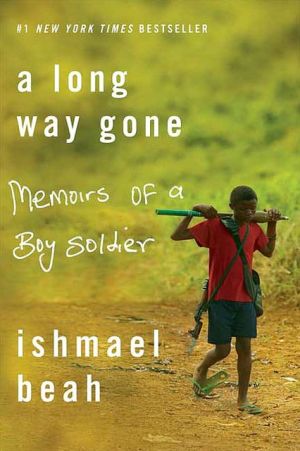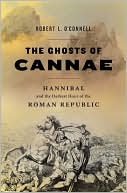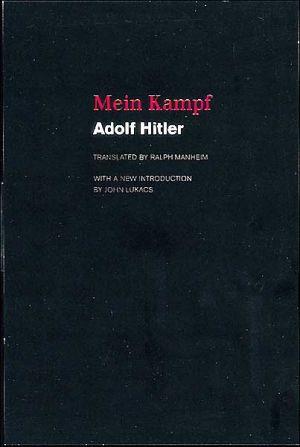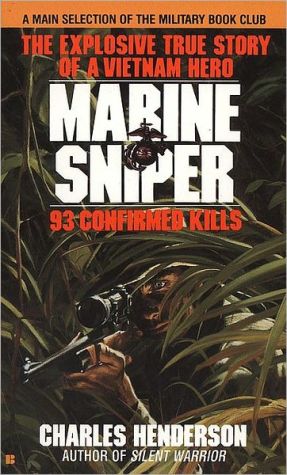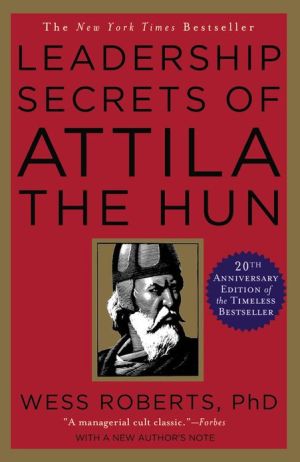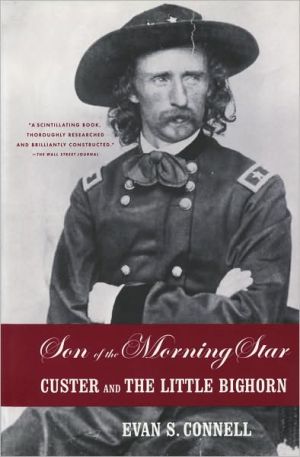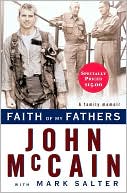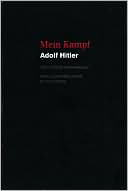A Long Way Gone: Memoirs of a Boy Soldier
My new friends have begun to suspect I haven't told them the full story of my life.\ "Why did you leave Sierra Leone?"\ "Because there is a war."\ "You mean, you saw people running around with guns and shooting each other?"\ "Yes, all the time."\ "Cool."\ I smile a little.\ "You should tell us about it sometime."\ "Yes, sometime."\ This is how wars are fought now: by children, hopped-up on drugs and wielding AK-47s. Children have become soldiers of choice. In the more than fifty conflicts...
Search in google:
Ishmael Beah tells a riveting story: how at the age of twelve, he fled attacking rebels and became a child soldier. The New Yorker In 1993, when the author was twelve, rebel forces attacked his home town, in Sierra Leone, and he was separated from his parents. For months, he straggled through the war-torn countryside, starving and terrified, until he was taken under the wing of a Shakespeare-spouting lieutenant in the government army. Soon, he was being fed amphetamines and trained to shoot an AK-47 (“Ignore the safety pin, they said, it will only slow you down”). Beah’s memoir documents his transformation from a child into a hardened, brutally efficient soldier who high-fived his fellow-recruits after they slaughtered their enemies—often boys their own age—and who “felt no pity for anyone.” His honesty is exacting, and a testament to the ability of children “to outlive their sufferings, if given a chance.”
A Long Way Gone\ Memoirs of a Boy Soldier \ \ By Ishmael Beah \ Farrar, Straus and Giroux\ Copyright © 2007 Ishmael Beah All right reserved.\ \ \ \ Chapter One\ There were all kinds of stories told about the war that made it sound as if it was happening in a faraway and different land. It wasn't until refugees started passing through our town that we began to see that it was actually taking place in our country. Families who had walked hundreds of miles told how relatives had been killed and their houses burned. Some people felt sorry for them and offered them places to stay, but most of the refugees refused, because they said the war would eventually reach our town. The children of these families wouldn't look at us, and they jumped at the sound of chopping wood or as stones landed on the tin roofs flung by children hunting birds with slingshots. The adults among these children from the war zones would be lost in their thoughts during conversations with the elders of my town. Apart from their fatigue and malnourishment, it was evident they had seen something that plagued their minds, something that we would refuse to accept if they told us all of it. At times I thought that some of the stories the passersby told were exaggerated. The only wars I knew of were those that I had read about in books or seen in movies such as Rambo: First Blood, and the one in neighboring Liberia that I had heard about on the BBC news. My imagination at ten years old didn't have the capacity to grasp what had taken away the happiness of the refugees. \ The first time that I was touched by war I was twelve. It was in January of 1993. I left home with Junior, my older brother, and our friend Talloi, both a year older than I, to go to the town of Mattru Jong, to participate in our friends' talent show. Mohamed, my best friend, couldn't come because he and his father were renovating their thatched-roof kitchen that day. The four of us had started a rap and dance group when I was eight. We were first introduced to rap music during one of our visits to Mobimbi, a quarter where the foreigners who worked for the same American company as my father lived. We often went to Mobimbi to swim in a pool and watch the huge color television and the white people who crowded the visitors' recreational area. One evening a music video that consisted of a bunch of young black fellows talking really fast came on the television. The four of us sat there mesmerized by the song, trying to understand what the black fellows were saying. At the end of the video, some letters came up at the bottom of the screen. They read "Sugarhill Gang, 'Rapper's Delight.'" Junior quickly wrote it down on a piece of paper. After that, we came to the quarters every other weekend to study that kind of music on television. We didn't know what it was called then, but I was impressed with the fact that the black fellows knew how to speak English really fast, and to the beat.\ Later on, when Junior went to secondary school, he befriended some boys who taught him more about foreign music and dance. During holidays, he brought me cassettes and taught my friends and me how to dance to what we came to know as hip- hop. I loved the dance, and particularly enjoyed learning the lyrics, because they were poetic and it improved my vocabulary. One afternoon, Father came home while Junior, Mohamed, Talloi, and I were learning the verse of "I Know You Got Soul" by Eric B. & Rakim. He stood by the door of our clay brick and tin roof house laughing and then asked, "Can you even understand what you are saying?" He left before Junior could answer. He sat in a hammock under the shade of the mango, guava, and orange trees and tuned his radio to the BBC news.\ "Now, this is good English, the kind that you should be listening to," he shouted from the yard.\ While Father listened to the news, Junior taught us how to move our feet to the beat. We alternately moved our right and then our left feet to the front and back, and simultaneously did the same with our arms, shaking our upper bodies and heads. "This move is called the running man," Junior said. Afterward, we would practice miming the rap songs we had memorized. Before we parted to carry out our various evening chores of fetching water and cleaning lamps, we would say "Peace, son" or "I'm out," phrases we had picked up from the rap lyrics. Outside, the evening music of birds and crickets would commence.\ On the morning that we left for Mattru Jong, we loaded our backpacks with notebooks of lyrics we were working on and stuffed our pockets with cassettes of rap albums. In those days we wore baggy jeans, and underneath them we had soccer shorts and sweatpants for dancing. Under our long-sleeved shirts we had sleeveless undershirts, T-shirts, and soccer jerseys. We wore three pairs of socks that we pulled down and folded to make our crapes* look puffy. When it got too hot in the day, we took some of the clothes off and carried them on our shoulders. They were fashionable, and we had no idea that this unusual way of dressing was going to benefit us. Since we intended to return the next day, we didn't say goodbye or tell anyone where we were going. We didn't know that we were leaving home, never to return.\ To save money, we decided to walk the sixteen miles to Mattru Jong. It was a beautiful summer day, the sun wasn't too hot, and the walk didn't feel long either, as we chatted about all kinds of things, mocked and chased each other. We carried slingshots that we used to stone birds and chase the monkeys that tried to cross the main dirt road. We stopped at several rivers to swim. At one river that had a bridge across it, we heard a passenger vehicle in the distance and decided to get out of the water and see if we could catch a free ride. I got out before Junior and Talloi, and ran across the bridge with their clothes. They thought they could catch up with me before the vehicle reached the bridge, but upon realizing that it was impossible, they started running back to the river, and just when they were in the middle of the bridge, the vehicle caught up to them. The girls in the truck laughed and the driver tapped his horn. It was funny, and for the rest of the trip they tried to get me back for what I had done, but they failed.\ We arrived at Kabati, my grandmother's village, around two in the afternoon. Mamie Kpana was the name that my grandmother was known by. She was tall and her perfectly long face complemented her beautiful cheekbones and big brown eyes. She always stood with her hands either on her hips or on her head. By looking at her, I could see where my mother had gotten her beautiful dark skin, extremely white teeth, and the translucent creases on her neck. My grandfather or kamor-teacher, as everyone called him-was a well-known local Arabic scholar and healer in the village and beyond.\ At Kabati, we ate, rested a bit, and started the last six miles. Grandmother wanted us to spend the night, but we told her that we would be back the following day.\ "How is that father of yours treating you these days?" she asked in a sweet voice that was laden with worry.\ "Why are you going to Mattru Jong, if not for school? And why do you look so skinny?" she continued asking, but we evaded her questions. She followed us to the edge of the village and watched as we descended the hill, switching her walking stick to her left hand so that she could wave us off with her right hand, a sign of good luck.\ We arrived in Mattru Jong a couple of hours later and met up with old friends, Gibrilla, Kaloko, and Khalilou. That night we went out to Bo Road, where street vendors sold food late into the night. We bought boiled groundnut and ate it as we conversed about what we were going to do the next day, made plans to see the space for the talent show and practice. We stayed in the verandah room of Khalilou's house. The room was small and had a tiny bed, so the four of us (Gibrilla and Kaloko went back to their houses) slept in the same bed, lying across with our feet hanging. I was able to fold my feet in a little more since I was shorter and smaller than all the other boys.\ The next day Junior, Talloi, and I stayed at Khalilou's house and waited for our friends to return from school at around 2:00 p.m. But they came home early. I was cleaning my crapes and counting for Junior and Talloi, who were having a push-up competition. Gibrilla and Kaloko walked onto the verandah and joined the competition. Talloi, breathing hard and speaking slowly, asked why they were back. Gibrilla explained that the teachers had told them that the rebels had attacked Mogbwemo, our home. School had been canceled until further notice. We stopped what we were doing.\ According to the teachers, the rebels had attacked the mining areas in the afternoon. The sudden outburst of gunfire had caused people to run for their lives in different directions. Fathers had come running from their workplaces, only to stand in front of their empty houses with no indication of where their families had gone. Mothers wept as they ran toward schools, rivers, and water taps to look for their children. Children ran home to look for parents who were wandering the streets in search of them. And as the gunfire intensified, people gave up looking for their loved ones and ran out of town.\ "This town will be next, according to the teachers." Gibrilla lifted himself from the cement floor. Junior, Talloi, and I took our backpacks and headed to the wharf with our friends. There, people were arriving from all over the mining area. Some we knew, but they couldn't tell us the whereabouts of our families. They said the attack had been too sudden, too chaotic; that everyone had fled in different directions in total confusion.\ For more than three hours, we stayed at the wharf, anxiously waiting and expecting either to see our families or to talk to someone who had seen them. But there was no news of them, and after a while we didn't know any of the people who came across the river. The day seemed oddly normal. The sun peacefully sailed through the white clouds, birds sang from treetops, the trees danced to the quiet wind. I still couldn't believe that the war had actually reached our home. It is impossible, I thought. When we left home the day before, there had been no indication the rebels were anywhere near.\ "What are you going to do?" Gibrilla asked us. We were all quiet for a while, and then Talloi broke the silence. "We must go back and see if we can find our families before it is too late."\ Junior and I nodded in agreement.\ Just three days earlier, I had seen my father walking slowly from work. His hard hat was under his arm and his long face was sweating from the hot afternoon sun. I was sitting on the verandah. I had not seen him for a while, as another stepmother had destroyed our relationship again. But that morning my father smiled at me as he came up the steps. He examined my face, and his lips were about to utter something, when my stepmother came out. He looked away, then at my stepmother, who pretended not to see me. They quietly went into the parlor. I held back my tears and left the verandah to meet with Junior at the junction where we waited for the lorry. We were on our way to see our mother in the next town about three miles away. When our father had paid for our school, we had seen her on weekends over the holidays when we were back home. Now that he refused to pay, we visited her every two or three days. That afternoon we met Mother at the market and walked with her as she purchased ingredients to cook for us. Her face was dull at first, but as soon as she hugged us, she brightened up. She told us that our little brother, Ibrahim, was at school and that we would go get him on our way from the market. She held our hands as we walked, and every so often she would turn around as if to see whether we were still with her.\ As we walked to our little brother's school, Mother turned to us and said, "I am sorry I do not have enough money to put you boys back in school at this point. I am working on it." She paused and then asked, "How is your father these days?"\ "He seems all right. I saw him this afternoon," I replied. Junior didn't say anything.\ Mother looked him directly in the eyes and said, "Your father is a good man and he loves you very much. He just seems to attract the wrong stepmothers for you boys."\ When we got to the school, our little brother was in the yard playing soccer with his friends. He was eight and pretty good for his age. As soon as he saw us, he came running, throwing himself on us. He measured himself against me to see if he had gotten taller than me. Mother laughed. My little brother's small round face glowed, and sweat formed around the creases he had on his neck, just like my mother's. All four of us walked to Mother's house. I held my little brother's hand, and he told me about school and challenged me to a soccer game later in the evening. My mother was single and devoted herself to taking care of Ibrahim. She said he sometimes asked about our father. When Junior and I were away in school, she had taken Ibrahim to see him a few times, and each time she had cried when my father hugged Ibrahim, because they were both so happy to see each other. My mother seemed lost in her thoughts, smiling as she relived the moments.\ Two days after that visit, we had left home. As we now stood at the wharf in Mattru Jong, I could visualize my father holding his hard hat and running back home from work, and my mother, weeping and running to my little brother's school. A sinking feeling overtook me.\ Junior, Talloi, and I jumped into a canoe and sadly waved to our friends as the canoe pulled away from the shores of Mattru Jong. As we landed on the other side of the river, more and more people were arriving in haste. We started walking, and a woman carrying her flip-flops on her head spoke without looking at us: "Too much blood has been spilled where you are going. Even the good spirits have fled from that place." She walked past us. In the bushes along the river, the strained voices of women cried out, "Nguwor gbor mu ma oo," God help us, and screamed the names of their children: "Yusufu, Jabu, Foday ..." We saw children walking by themselves, shirtless, in their underwear, following the crowd. "Nya nje oo, nya keke oo," my mother, my father, the children were crying. There were also dogs running, in between the crowds of people, who were still running, even though far away from harm. The dogs sniffed the air, looking for their owners. My veins tightened.\ We had walked six miles and were now at Kabati, Grandmother's village. It was deserted. All that was left were footprints in the sand leading toward the dense forest that spread out beyond the village.\ As evening approached, people started arriving from the mining area. Their whispers, the cries of little children seeking lost parents and tired of walking, and the wails of hungry babies replaced the evening songs of crickets and birds. We sat on Grandmother's verandah, waiting and listening.\ "Do you guys think it is a good idea to go back to Mogbwemo?" Junior asked. But before either of us had a chance to answer, a Volkswagen roared in the distance and all the people walking on the road ran into the nearby bushes. We ran, too, but didn't go that far. My heart pounded and my breathing intensified. The vehicle stopped in front of my grandmother's house, and from where we lay, we could see that whoever was inside the car was not armed. As we, and others, emerged from the bushes, we saw a man run from the driver's seat to the sidewalk, where he vomited blood. His arm was bleeding. When he stopped vomiting, he began to cry. It was the first time I had seen a grown man cry like a child, and I felt a sting in my heart. A woman put her arms around the man and begged him to stand up. He got to his feet and walked toward the van. When he opened the door opposite the driver's, a woman who was leaning against it fell to the ground. Blood was coming out of her ears. People covered the eyes of their children.\ In the back of the van were three more dead bodies, two girls and a boy, and their blood was all over the seats and the ceiling of the van. I wanted to move away from what I was seeing, but couldn't. My feet went numb and my entire body froze. Later we learned that the man had tried to escape with his family and the rebels had shot at his vehicle, killing all his family. The only thing that consoled him, for a few seconds at least, was when the woman who had embraced him, and now cried with him, told him that at least he would have the chance to bury them. He would always know where they were laid to rest, she said. She seemed to know a little more about war than the rest of us.\ (Continues...)\ \ \ \ \ Excerpted from A Long Way Gone by Ishmael Beah Copyright © 2007 by Ishmael Beah. Excerpted by permission.\ All rights reserved. No part of this excerpt may be reproduced or reprinted without permission in writing from the publisher.\ Excerpts are provided by Dial-A-Book Inc. solely for the personal use of visitors to this web site. \ \ \
\ From Barnes & NobleBy now, nearly every habitual news watcher knows that child soldiers are being used as human pawns in dozens of conflicts around the world. Indeed, the figures are staggering: As many as 300,000 children are currently fighting in wars. Behind these distressing figures, of course, are real-life children, some as young as 8. Journalistic reconstructions can take us only so far into the lives of these boys; we had to wait for this firsthand account by Sierra Leone native Ishmael Beah to truly understand this ghastly, life-shattering practice. Beah was only 13 when he was handed an AK-47 and sent off to the killing fields. A bracing memoir about a survivor in a world gone mad.\ \ \ \ \ The New YorkerIn 1993, when the author was twelve, rebel forces attacked his home town, in Sierra Leone, and he was separated from his parents. For months, he straggled through the war-torn countryside, starving and terrified, until he was taken under the wing of a Shakespeare-spouting lieutenant in the government army. Soon, he was being fed amphetamines and trained to shoot an AK-47 (“Ignore the safety pin, they said, it will only slow you down”). Beah’s memoir documents his transformation from a child into a hardened, brutally efficient soldier who high-fived his fellow-recruits after they slaughtered their enemies—often boys their own age—and who “felt no pity for anyone.” His honesty is exacting, and a testament to the ability of children “to outlive their sufferings, if given a chance.”\ \ \ Carolyn SeeEveryone in the world should read this book. Not just because it contains an amazing story, or because it's our moral, bleeding-heart duty, or because it's clearly written. We should read it to learn about the world and about what it means to be human.\ — The Washington Post\ \ \ \ \ William BoydBeah’s memoir joins an elite class of writing: Africans witnessing African wars. I think of Sozaboy, Ken Saro-Wiwa’s masterly novel about a young soldier during the Biafran war, or Machete Season, Jean Hatzfeld’s book of blood-chilling interviews with Rwandan killers. A Long Way Gone makes you wonder how anyone comes through such unrelenting ghastliness and horror with his humanity and sanity intact. Unusually, the smiling, open face of the author on the book jacket provides welcome and timely reassurance. Ishmael Beah seems to prove it can happen.\ — The New York Times\ \ \ \ \ Publishers WeeklyThis absorbing account by a young man who, as a boy of 12, gets swept up in Sierra Leone's civil war goes beyond even the best journalistic efforts in revealing the life and mind of a child abducted into the horrors of warfare. Beah's harrowing journey transforms him overnight from a child enthralled by American hip-hop music and dance to an internal refugee bereft of family, wandering from village to village in a country grown deeply divided by the indiscriminate atrocities of unruly, sociopathic rebel and army forces. Beah then finds himself in the army-in a drug-filled life of casual mass slaughter that lasts until he is 15, when he's brought to a rehabilitation center sponsored by UNICEF and partnering NGOs. The process marks out Beah as a gifted spokesman for the center's work after his "repatriation" to civilian life in the capital, where he lives with his family and a distant uncle. When the war finally engulfs the capital, it sends 17-year-old Beah fleeing again, this time to the U.S., where he now lives. (Beah graduated from Oberlin College in 2004.) Told in clear, accessible language by a young writer with a gifted literary voice, this memoir seems destined to become a classic firsthand account of war and the ongoing plight of child soldiers in conflicts worldwide. (Feb.) Copyright 2006 Reed Business Information.\ \ \ \ \ Publishers WeeklyBeah's harrowing story of a boy caught up in the civil strife in Sierra Leone is not an audio to curl up with before bedtime. Beah's even-toned narrative is particularly disturbing because it's almost exactly the same whether he is enjoying the company of a newly found uncle or busy shooting and maiming rebels and even burying them alive. His monotone works particularly well when he is recounting his dreams, for he cannot distinguish his nightmares from his waking life. Beah speaks with a thick accent that omits "th" sounds. Many words are understandable in their context, but a few are not. He also stumbles over some longer and more complex words. Despite these drawbacks, Beah's tale is a riveting snapshot of childhoods stolen from all too many, not just in Sierra Leone but in Somalia, Iraq, Palestine and other places ravaged by civil wars. Simultaneous release with the FSG hardcover (Reviews, Dec. 18). (Mar.)\ Copyright 2007 Reed Business Information\ \ \ \ \ VOYAThis remarkable firsthand account shows how civil strife destroys lives. Ishmael Beah was twelve years old in 1993 when insurrection tore apart his native country of Sierra Leone. Separated from his family, Ishmael joined up with other traumatized young boys wandering the countryside, looking for family, food, and shelter. Often they were cruelly treated by frightened villagers, but occasionally they encountered selfless kindness. Day after day, they witnessed atrocities and narrowly escaped death. Months later, the starving thirteen-year-old was recruited into a government militia, and for the next two years, fought alongside other child soldiers. Equipped with an AK-47 and morally anaesthetized with hard drugs, Beah became a remorseless killer. The horrors he saw or perpetrated still haunt him and will be difficult for the reader to forget. By great good fortune, he was rescued by a UNICEF team and slowly rehabilitated in a group home for child soldiers. A lucky visit to the United States to address a UN committee gave him a friend in New York and an eventual refuge when Sierra Leone was again wracked by a military coup in 1997. Beah writes his story with painful honesty, horrifying detail, and touches of remarkable lyricism. This young writer has a bright future. Unfortunately his second-language English is still sometimes clumsy and syntactically awkward; more skillful editing might have made the book a classic. As children fight on in dreadful wars around the globe, Beah's story is a must for every school collection.\ \ \ \ \ Library JournalRarely does one encounter anything but outrage, sadness, and pain when reading about the exploitation of child soldiers, but Beah's account also offers hope, humility, bravery, and, yes, peace. Beah was 13 years old when rebels attacked nearby villages in his native Sierra Leone. He was separated from his family (he learned later that they perished) and was on the run from both the rebels and the Sierra Leone Military Forces for over a year. Eventually captured by the military, which could behave as horrendously as the rebels, the boy was forced to join the army, carrying guns or grenade launchers. Like the thousands of other children traumatized by these events, Beah needed rehabilitation when his "tour of duty" was over. A former juvenile center turned counseling house afforded him a safe haven. After being chosen to speak at a UN conference in New York, he began the long process of relocating to the United States. The brutality of war is brought out early in this narrative, and just to have survived is amazing. Beah writes with frankness and honesty about his experiences but also with other people in mind; his account of the healing process after the horrors he saw is remarkable. His book, especially relevant in today's world, should be in all high school, public, and academic libraries. [See Prepub Alert, LJ11/15/06; Beah's book is the second title in the new Starbucks book program.—Ed.]\ —James Thorsen\ \ \ \ \ \ Kirkus ReviewsThe survivor of a dirty war in starkest Africa recounts his transition from 12-year-old orphan to killing machine. To emerge from Sierra Leone's malignant civil conflict and eventually graduate from college in the U.S. marks Beah as very unusual, if not unique. His memoir seeks to illuminate the process that created, and continues to create, one of the most pitiable yet universally feared products of modern warfare: the boy soldier. It illustrates how, in African nations under the stress of open civil war, youthful males cluster in packs for self-protection, fleeing the military forces of all sides, distrusted and persecuted by strangers they encounter, until they are killed or commandeered as recruits. Nearly half the text deals with Beah's life as a fugitive after marauding rebel troops ravaged his home village. He fled with several other boys, but they were separated during another attack and he was forced to spend several weeks alone in the bush; the loneliness there instilled a craving for human companionship of any type. The regular military finally snared Beah and some new companions, telling them they must train as soldiers or die. The rebels, they were assured, were responsible for killing their families and destroying their homes; as soldiers, they would exact manly revenge and serve the nation. Cocaine, marijuana and painkillers became the boys' mind-numbing daily diet. They were indoctrinated by practicing mayhem on tethered prisoners and became willing experts at lying in ambush with their aging AK-47 rifles. For them, killing human beings had replaced ordinary child's play. Beah's halting narrative has confusing time shifts, but it's hideously effective in conveying theessential horror of his experiences.\ \ \ \ \ From the Publisher\ “Everyone in the world should read this book. Not just because it contains an amazing story, or because it’s our moral, bleeding-heart duty, or because it’s clearly written. We should read it to learn about the world and about what it means to be human.” —Washington Post “A breathtaking and unselfpitying account of how a gentle spirit survives a childhood from which all innocence has suddenly been sucked out. It's a truly riveting memoir.” —Time \ \ “Beah is a gifted writer. . . Read his memoir and you will be haunted . . . It’s a high price to pay, but it’s worth it.” —Newsweek.com\ “Deeply moving, even uplifting…Beah's story, with its clear-eyed reporting and literate particularity—whether he's dancing to rap, eating a coconut or running toward the burning village where his family is trapped—demands to be read.” —People (Critic’s Choice, Four stars) “Beah’s memoir, A Long Way Gone (Farrar, Straus and Giroux), is unforgettable testimony that Africa’s children—millions of them dying and orphaned by preventable diseases, hundreds of thousands of them forced into battle—have eyes to see and voices to tell what has happened. And what voices! How is it possible that 26-year-old Beah, a nonnative English speaker, separated from his family at age 12, taught to maim and to kill at 13, can sound such notes of family happiness, of friendship under duress, of quiet horror? No outsider could have written this book, and it’s hard to imagine that many insiders could do so with such acute vision, stark language, and tenderness. It is a heart-rending achievement.” —Melissa Fay Greene, Elle\ “When Beah is finally approached about the possibility of serving as a spokesperson on the issue of child soldiers, he knows exactly what he wants to tell the world: “I would always tell people that I believe children have the resilience to outlive their sufferings, if given a chance.”\ Others may make the same assertions, but Beah has the advantage of stating them in the first person. That makes A Long Way Gone all the more gripping.” —Christian Science Monitor\ \ “In place of a text that has every right to be a diatribe against Sierra Leone, globalization or even himself, Beah has produced a book of such self-effacing humanity that refugees, political fronts and even death squads resolve themselves back into the faces of mothers, fathers and siblings. A Long Way Gone transports us into the lives of thousands of children whose lives have been altered by war, and it does so with a genuine and disarmingly emotional force.” —Minneapolis Star-Tribune\ “What Beah saw and did during [the war] has haunted him ever since, and if you read his stunning and unflinching memoir, you'll be haunted, too . . . It would have been enough if Ishmael Beah had merely survived the horrors described in A Long Way Gone. That he has written this unforgettable firsthand account of his odyssey is harder still to grasp. Those seeking to understand the human consequences of war, its brutal and brutalizing costs, would be wise to reflect on Ishmael Beah's story.” —Philadelphia Inquirer\ “Beah speaks in a distinctive voice, and he tells an important story.” —The Wall Street Journal “Hideously effective in conveying the essential horror of his experiences.” —Kirkus Reviews “Extraordinary . . . A ferocious and desolate account of how ordinary children were turned into professional killers.” —The Guardian UK "A Long Way Gone is one of the most important war stories of our generation. The arming of children is among the greatest evils of the modern world, and yet we know so little about it because the children themselves are swallowed up by the very wars they are forced to wage. Ishmael Beah has not only emerged intact from this chaos, he has become one of its most eloquent chroniclers. We ignore his message at our peril." —Sebastian Junger, author of A Death in Belmont and A Perfect Storm\ "This is a beautifully written book about a shocking war and the children who were forced to fight it. Ishmael Beah describes the unthinkable in calm, unforgettable language; his memoir is an important testament to the children elsewhere who continue to be conscripted into armies and militias." —Steve Coll, author of Ghost Wars: The Secret History of the CIA, Afghanistan, and Bin Laden, from the Soviet Invasion to September 10, 2001, winner of the 2005 Pulitzer Prize for general Nonfiction "This is a wrenching, beautiful, and mesmerizing tale. Beah's amazing saga provides a haunting lesson about how gentle folks can be capable of great brutalities as well goodness and courage. It will leave you breathless." —Walter Isaacson, author of Benjamin Franklin: An American Life “A Long Way Gone hits you hard in the gut with Sierra Leone’s unimaginable brutality and then it touches your soul with unexpected acts of kindness. Ishmael Beah’s story tears your heart to pieces and then forces you to put it back together again, because if Beah can emerge from such horror with his humanity in tact, it’s the least you can do.” —Jeannette Walls, author of The Glass Castle: A Memoir\ \ \
